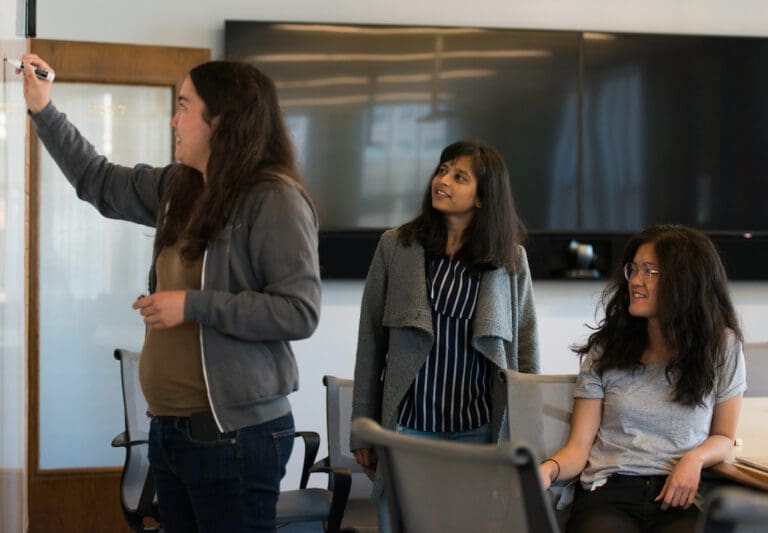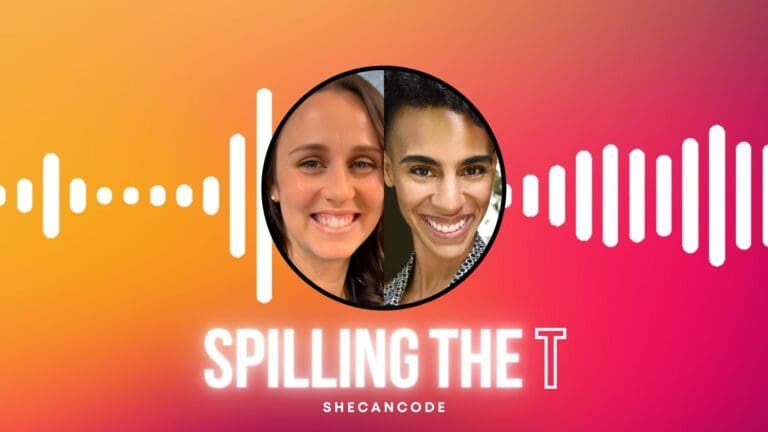Below is an article originally written by Nina Yang, Software Engineer at Yelp, and published on September 9, 2019 on their Engineering Blog.
Finding that first job in the tech industry can be a daunting task. You might not get a response to your application, or maybe you’ll move forward with the interview, but it doesn’t pan out in the end. You might wonder, “How are other people successful at getting offers? What do others do differently? What’s the secret to getting through this arduous process?”
The answer is pretty simple: lots of practice. While there’s never a guarantee of getting an offer, following these recommendations can increase your chances of successfully going through the interview process and potentially landing your dream job!
Know the Basic Flow
When you start interviewing, expect to follow this basic structure. Below is Yelp’s interview process, but many companies have something similar:
Review CS Fundamentals
Before you begin the interview process, you’ll need to have a good grasp of fundamental CS knowledge. If it’s been a while, review data structures and algorithms. I highly recommend Introduction to Algorithms as a good resource. If textbooks aren’t for you, you can find an abundant amount of public resources online. Keep in mind that when a company decides to not proceed at any stage of the interview process, they will likely have you wait 6 months or more before you can reapply. It’s important to be prepared before you apply so you can get the most out of your experience.
Coding Practice
For coding exercises, most companies will allow you to choose your programming language. Even if your preferred language is different from the company’s primary coding language, use it! This is your opportunity to demonstrate your coding knowledge and show your best work to the interviewer. Pro tip! The interview process is not the time to attempt a new language. Stick to your strengths.
If you don’t have a strong preference, consider the trade-offs of different programming languages. For example, one of the biggest constraints for any interview is time, so using a scripted language like Python over a compiled language like Java could be an advantage. Statically typed languages like Java and C++ are considered very verbose, which can take some time to transfer from your head onto a screen or whiteboard. In addition to being less verbose, scripting languages like Python have more flexibility with data structures such as slice notation.
Now that you have the fundamentals down, it’s time to practice!
Out of all the options available online, many engineers favor LeetCode. Leetcode categorizes problems by difficulty, which is helpful when you’re preparing for an interview. The first technical interview typically covers easy to medium-level questions, and onsite interviews are medium to hard, so it’s important to practice all levels. From personal experience and online suggestions, you should do 100-200 Leetcode questions to be prepared.
Practicing coding will help you at every stage of the interview process. However, you’ll want to make sure you also prepare for the online coding challenge, which is typically the first step. Take advantage of any practice tests made available to you on the website that the company uses (for Yelp, it’s currently HackerRank). Practice will allow you to familiarize yourself with the UI and the environment, so those won’t be barriers when taking the timed version. When you’re ready to take the test, be sure you are in a quiet place without interruptions and that you have a reliable internet connection. You don’t want technical difficulties affecting your performance.
Prepare for the First Interview
Once you’re done with independent study, it’s time to mimic a real-life interview! There are many online resources, such as Pramp, to help you get comfortable with interview situations. Doing mock interviews will let you practice coding while explaining your thought process. It’s important to know that during an interview, you are evaluated on your technical thought process, and not just your code. This is often what distinguishes an outstanding candidate from an average candidate. There is no substitute for practicing saying your thoughts out loud— you don’t want your actual interview to be the first time you try.
During your first interview, there are at least three times when you should speak up:

Remember that in an interview, timing matters! Don’t assume that the first question that the interviewer asks will be the only question and be sure to keep a steady pace throughout the interview.
I hope all of this was helpful as you embark on the interview process! See below for key takeaways and additional resources.
Key Takeaways
CS FundamentalsCoding PracticeTechnical Interview








